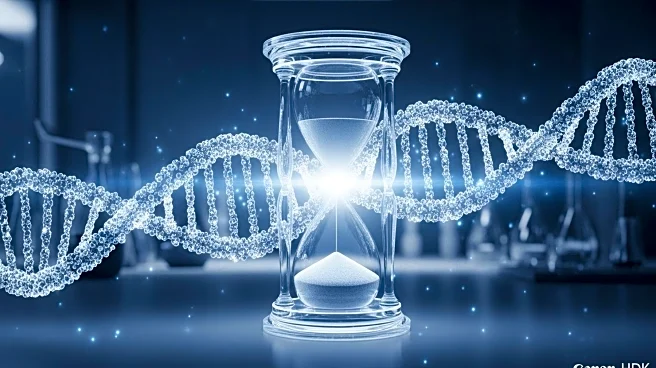What's Happening?
Juan Carlos Izpisua Belmonte, a founding scientist of Altos Labs, delivered a keynote address at the European Society of Gene and Cell Therapy conference, focusing on combating diseases of aging through cellular rejuvenation. Altos Labs, a biotech company launched in 2022 with significant funding, aims to restore health by reversing disease and injury through cell rejuvenation. Izpisua Belmonte discussed the concept of 'buffer capacity,' which refers to a cell's ability to respond to stress and maintain resilience, noting that this capacity declines with age. He highlighted research on mesenchymal drift, a maladaptive program that expands across the organism, contributing to aging and disease. His lab has adapted Yamanaka's protocol, using short pulses of transcription factors to increase lifespan in mice, which could have implications for human disease models.
Why It's Important?
The research presented by Izpisua Belmonte is significant as it offers potential pathways to slow down aging and improve outcomes for various diseases. By increasing buffer capacity and addressing mesenchymal drift, there is hope for delaying disease onset and possibly reversing aging processes. This could have profound impacts on healthcare, particularly in treating age-related diseases and improving organ transplantation outcomes. The approach could lead to new diagnostic markers and therapeutic strategies, potentially extending human lifespan and enhancing quality of life.
What's Next?
Future steps may include clinical applications of these findings, such as ex vivo organ reprogramming and possibly rejuvenating human organs in vivo. The research could lead to advancements in organ transplantation, with experiments showing increased survival when aged donor kidneys are treated with Yamanaka factors before transplantation. Continued exploration of mesenchymal drift and buffer capacity could further refine strategies to combat aging and related diseases.
Beyond the Headlines
The ethical implications of extending human lifespan and altering aging processes are significant. There may be cultural and societal shifts as the potential for longer life becomes more feasible. Additionally, the legal and regulatory frameworks surrounding such treatments will need to evolve to address new challenges in healthcare and biotechnology.









